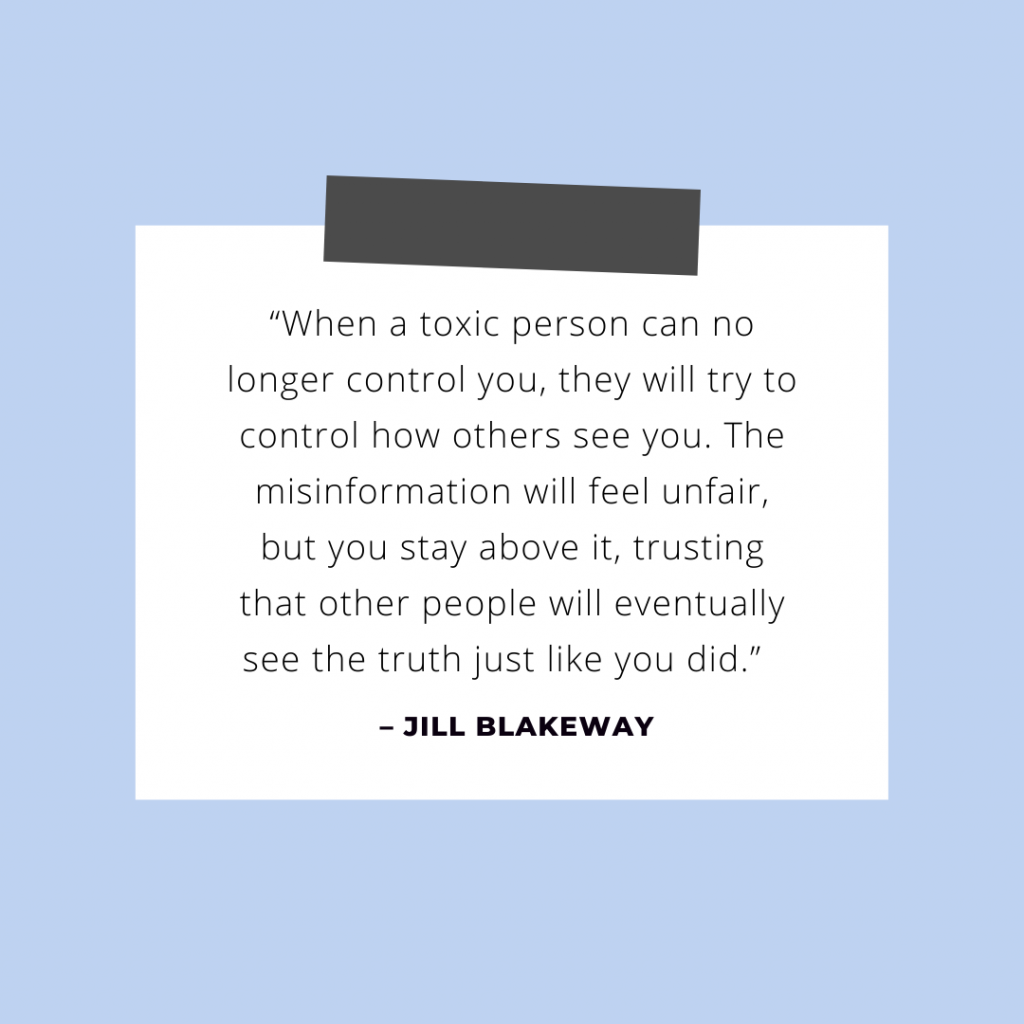Common Signs A Narcissist Is Done with You (For Good)

The end of any relationship can be brutal, but a breakup with a narcissist can be excruciating. Narcissists are known for their lack of empathy and inability to take responsibility for their actions, making it hard for them to move on and heal.
Understanding that a narcissist cannot have a healthy relationship is essential. They are only interested in fulfilling their needs and desires and manipulating and exploiting others to get what they want, even if that means hurting you or driving your self-esteem into the ground.
If you’re feeling hurt, confused, or angry after a breakup with a narcissist, it’s important to remember that their behavior is not a reflection of your worth or value as a person. The narcissist likely chose to be with you because they saw something in you that they could use to boost their ego.
Understanding the Narcissistic Cycle
Narcissistic personality disorder is characterized by a cycle of idealization, devaluing, and discarding. They use their partners as a narcissist supply, engaging them in the form of emotional dependency. It is essential to understand this cycle to recognize and deal with a narcissist’s manipulative behavior.
1) Idealization
During the idealization phase, the narcissist will show you attention and affection. They will love bomb you, making you feel unique and desired. They will tell you how perfect you are and how lucky they are to have you in their life. This phase can be very intense and overwhelming, often lasting for as little as a few days or weeks all the way up to several months.
2) Devaluing
Once the narcissist has gotten what they want from you, they will start to devalue you.
- They may start criticizing, belittling, and blaming you for everything that goes wrong in the relationship, along with various other red flags.
- They may become emotionally manipulative, using gaslighting to guilt you and projection to make you doubt your own reality.
- They may also withdraw their affection and become cold and distant.
3) Discarding
The final phase of the cycle is discarding. The narcissist will discard you when they no longer need you or when they find someone else to idealize. They may disappear without warning, leaving you feeling confused and hurt. They may also discard you cruelly, accusing you of all sorts of things and blaming you for the failure of the relationship.
It is important to note that the cycle can repeat itself, with the narcissist coming back into your life during the idealization phase. This can create a trauma bond, where you feel attached to the narcissist despite the abuse.
Setting boundaries and seeking therapy to heal from the abuse is important to deal with a narcissist. It is also important to recognize that the narcissist’s behavior is not your fault and not to blame yourself for their actions.

How Long Do Narcissist Relationships Last?
Unfortunately, there is no one answer to this question, as the length of a narcissistic relationship can vary greatly depending on various factors.
One factor that can impact the length of a narcissistic relationship is the level of narcissistic traits or narcissistic personality disorder (NPD) that the individual has. Individuals with NPD may have a more difficult time maintaining long-term relationships, as their need for attention, admiration, and control can cause strain on their partner.
Another factor that can impact the length of a narcissistic relationship is the effort and kindness put into the relationship. If the narcissist is unwilling to put in the effort to maintain a healthy relationship, likely, the relationship will not last long.
Do Narcissists Come Back to Relationships?
It is not uncommon for narcissists to come back to relationships after they have ended. This is known as hoovering, and it is a tactic that narcissists use to regain control over their partner.
Suppose you have ended a relationship with a narcissist. In that case, it is important to remember that hoovering is not a sign that the narcissist has changed or that the relationship will be any different. In fact, the narcissist will likely continue to exhibit the same narcissistic traits and behaviors that led to the end of the relationship in the first place.
Commons Signs A Narcissist Is Done With You
If you are in a relationship with a narcissist, you may have noticed that they tend to be very hot and cold. One day, they may shower you with affection, and the next day, they may be distant and cold.
However, there are certain signs that a narcissist is done with you and is ready to move on, the most common ones being:
- They devalue/criticize you.
- They are distant.
- The narcissist ignores everything you say.
- They are always irritated with you.
- They gaslight you.
- The narcissist continuously takes advantage of you.
- They start accusing you of being disloyal/lying/cheating/being envious.
- They are unfaithful, denying their infidelity once you find out about it.
- A narcissist makes themselves inaccessible to you, never answering your calls, texts, emails, etc.
- They are always angry with you.

Should I Be Worried If a Narcissist Is Done with Me?
It can be a relief when a narcissist is done with you. When you end a toxic relationship with a narcissist, you can finally move on and heal. It is essential that you take control of your life and don’t allow them to pull you back into their cycle of abuse.
Will a Narcissist Come Back?
Narcissists are known for their unpredictable behavior and may come back into your life at any time, whether to hoover you back in or continue playing mind games. If a narcissist does come back, it is important to remember that their behavior is unlikely to change.
They may promise to do better or say that they have changed, but this is often just a ploy to get you back under their control. If you decide to give a narcissist another chance, it is important to set clear boundaries and be prepared to walk away if they do not respect them.
Signs a Narcissist Is Done with You
If a narcissist is truly done with you, they may become distant, cold, or disappear altogether. This can be a difficult time, as you may be left wondering what you did wrong or how you can fix the relationship. However, it is important to recognize that a narcissist’s behavior is not your fault and that you deserve to be treated with respect and kindness.
Some signs that a narcissist may be done with you include:
- Withdrawing from communication
- Acting cold or distant
- Disappearing for long periods of time
- Blaming you for their behavior
- Refusing to take responsibility for their actions
If you recognize any of these signs, it may be time to move on from the relationship. While it can be difficult to let go of someone you care about, it is important to prioritize your own well-being and recognize that you deserve to be treated with love and respect.
How to Break Free from a Narcissistic Abuse Cycle
Breaking free from a narcissistic abuse cycle can be a challenging and difficult process, but it is possible with the right mindset, support system, and coping strategies. Here are some steps you can take to break free from a narcissistic abuse cycle:
- Recognize the abuse: The first step in breaking free from a narcissistic abuse cycle is to recognize that you are being abused. Narcissists use a variety of tactics to manipulate and control their victims, such as gaslighting, projection, and blame-shifting. Once you recognize the abuse, you can start to take steps to protect yourself.
- Seek therapy: Therapy can be a valuable tool in helping you heal from the effects of narcissistic abuse. A therapist can help you understand the dynamics of the abuse, identify unhealthy patterns in your relationships, and develop coping strategies to deal with the aftermath of the abuse.
- Build a support system: Surrounding yourself with a supportive network of friends and family can be crucial in breaking free from a narcissistic abuse cycle. Having people who believe and validate your experiences can help you feel less alone and more empowered.
- Set boundaries: Setting clear boundaries with the narcissist in your life can help you protect yourself from further abuse. This may involve limiting contact, refusing to engage in arguments or manipulations, or cutting off contact altogether.
- Practice self-care: Taking care of and forgiving yourself is important to healing from narcissistic abuse. This may involve engaging in activities that bring you joy, practicing mindfulness or meditation, or seeking out professional help when needed.
Remember, breaking free from a narcissistic abuse cycle is a process that may take time and effort to heal fully. But with the right support and strategies, you can move forward and live a healthy, fulfilling life.



